My article on the coeliac vaccine (you can read it here) seems to have pushed a lot of buttons.
Mostly people who had children or loved ones with the autoimmune disease, or were suffering themselves, were angry at my opinion. It’s not easy to have coeliac disease and/or non coeliac gluten sensitivity… or for that matter any autoimmune disease. Believe me, I know. Firstly I’ve been off wheat for 7 years, I’m non coeliac gluten sensitive and my husband is a diagnosed coeliac. I began my journey with this in the early 90’s when there were no gluten-free foods available and no restaurant with the GF or GFO abbreviation beside the food menu.
These days there are more gluten-free foods then food additives available to the food industry. Many food products that say they are gluten free are contaminated with gluten and possibly more than 70% of foods on the grocery shelf include gluten, wheat or wheat derived additives or are cross contaminated in a food manufacturing facility. Restaurants can cross contaminate foods and even medications and supplements have wheat contained within them.
Not only that but cosmetics, makeups and personal care products also contain wheat and wheat derivatives, and, to take it one step further, doors, ceilings, and even roof insulation can also contain wheat. Soon we will be asking for a gluten-free room at the hotel!
Argh! Is there anything that this multi-billion dollar food product does not contaminate?!
The Problem With a Vaccination for Coeliac Disease
I know what it takes to stay clean of wheat and gluten; I’m not an amateur at this and that’s why I teach others how to do this and have programs (6 Weeks No Wheat), a documentary – What’s With Wheat? and recipe books on how to do it.
But there is a bigger picture here, and a coeliac vaccine jab to fix the problem is not going to address the real issue regarding the increase in this disease.
When I was at high school, one of my friends told me her sister had coeliac disease. This was back in 1976 when I was a teenager. I’d never heard of it until then and I hadn’t heard of anyone else with the condition until the late 80’s. These days it is on everyone’s lips as a phenomenon of the last few decades.
Yes, being a coeliac may well mean that you can’t go out to every restaurant because they don’t serve gluten free, and you have to make sure your chips are fried in a different oil that’s not contaminated, and your non-coeliac friends just might not get it, etc, etc, etc, but, as I said, it’s important to look at the bigger picture here.
Our food and health care system is the problem, it’s about instant and quick rather than prevention, time and tradition. Our agricultural practices are based on the spraying of chemicals for every part of the pre-planting, growing and storing process. Our food is refined, processed, fortified, thickened, gummed, flavoured, preserved and antioxidized in order for us to live a ‘convenient’ life lie that makes us sick.
This is the real heart of the problem and a vaccine for coeliac disease is not going to fix it.
If you choose to eat the foods of modern day (and wheat is a huge part of this), then you choose to perpetuate the growing sickness of our children, as well as the planet.
We are not only killing ourselves with every modern day food morsel we eat, but we are destroying the earth’s ability to sustain humans and many other species. If you haven’t heard, we are now in the ‘Holocene extinction’, also known as the ‘sixth mass extinction‘ of the planet.
Agriculture, if it is done regeneratively and sustainably, has the ability to capture more and more carbon to slow down the human-propelled climate change (this doesn’t include natural cyclical climate change). If you continue to purchase these modern day wheat-gorged foods, then you continue to be part of the problem.
As Dr Natasha Campbell-McBride so beautifully says, “We have to get back into the kitchen to feed and nourish our families to heal this nation”.
How to Make a Change for Health
Be the individual that creates a tsunami of change, who chooses to eat responsibly and who becomes the leader in your group of friends to guide them through ethical, healthy eating and food choices.
Be the mother in the mothers’ group that helps others find a better way to feed their family and help to ensure we leave this planet better off than it is now. Find out how to educate yourself through the Functional Nutrition Academy on how to be that change maker in your own community, family or mothers’ group.
Some gluten-free foods are more expensive. But what’s even more costly is what you don’t see when you eat modern foods: the damage to our soils, the plastic in our waterways, the destruction of our forests, the pollution of our oceans, the decimation of the soil ecology, the erosion of the human microbiome, the failing of our immune system, the increase in sickness across all population demographics, even the health of our pets, are just the tip of the iceberg.
Once you are educated about the food industry and chemical agricultural practices, you can never be uneducated about the disinterest it has in your health (read my book Changing Habits Changing Lives for an inkling of what is happening). For most food manufacturers, it’s more about profits, shareholders and how much they can make a product look like a food, taste like a food and smell like a food but have very little food in it. It’s about value adding.
Let’s take breakfast cereal as example. Firstly they start with a grain, take everything out of it – like the bran and the germ where all the goodness lies – then value add by putting in synthetic vitamins, bran (yes, add a bit back in), flavours, sugars, colours, rosemary extract (that’s a laugh – nothing rosemary about that additive) and, presto! Charge a fortune for as little food as possible.
Don’t dwell on what you can’t eat, but take pleasure in all the wonderful abundant foods that nature has given us that you can eat. Spend a little bit more money and time now for your health to save you a lot more money and time for illness in the future.
Living Sicker, Not Longer
I’m watching my generation drop like flies (I’m 58): cancer, heart disease, diabetes, metabolic syndrome, autoimmunity, osteoarthritis and the many new diseases and rare forms of cancer that are pounding them at the moment. They are not able to do the things they want to do in their retirement; instead they are having hip and knee replacements, operations, chemotherapy, radiation as well as being on a cocktail of medications which all have over-arching effects on the body. This is not the way it is meant to be.
It’s not that we are living longer, we are just living sicker. The Blue Zones show that humans with a healthy lifestyle, community and friendship group live to 100 and beyond without the maladies of physical and mental degeneration.
Do I have the answer? I’m not sure, but I know this – I am doing everything I can to live a life that has minimal impact on the environment, I spend time in nature, I have a family and a group of friends who support me and cheer me on, I support restaurants and cafes in my area who support the local organic farmers and community, I buy from my local farmers market and I know my farmer, I try to sequester carbon by using organic, regenerative and wholistic farming methods to produce nutrient dense foods on the Changing Habits Farm and I spend time in my kitchen to feed and nourish my family, to be part of a collective that also do this so we can heal this nation.
Cyndi O’Meara
FOREST Advocate (F – Food that is O – Organic R – Regenerative E – Ethical S – Sustainable and T – Trusted)


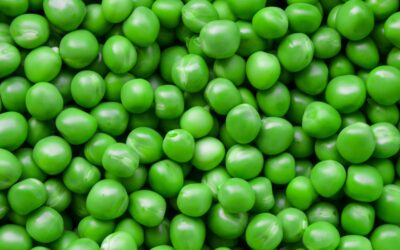

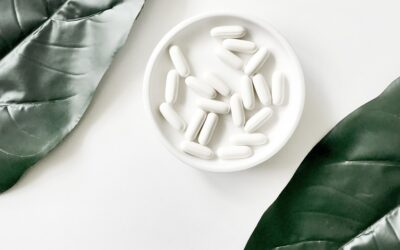
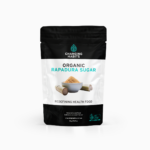
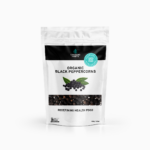
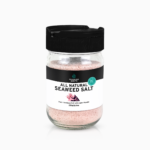
Thank you for your informative site. Can you discuss fermentation and wheat? Are sourdough breads more digestible? Are sprouted grains more digestible? I am a health coach and fibromite, always looking to understand more about nutrition and digestion. Thank you!
Hi Alexis! Thanks for getting in touch and for your kind words 🙂 You may find this blog an informative read: https://whatswithwheat.com/sourdough-whats-so-good-about-it-and-should-you-eat-it/ Hope this helps. Kerry
I just wish every family with children with autoimmune disease or under the autism umbrella would listen to YOU Thankyou again for all your research and sharing and always being the Example on you Cyndi 👌❤️